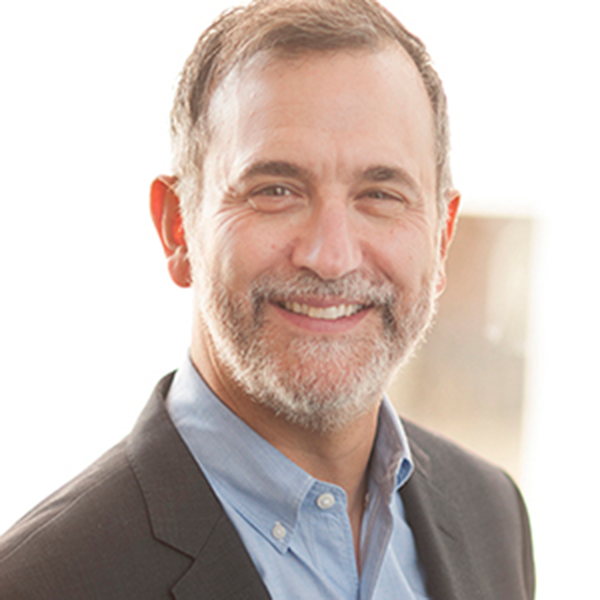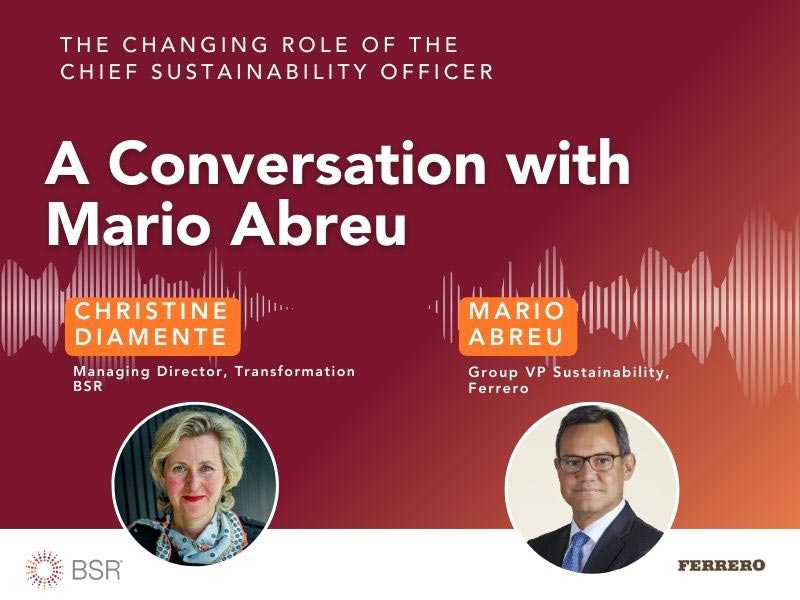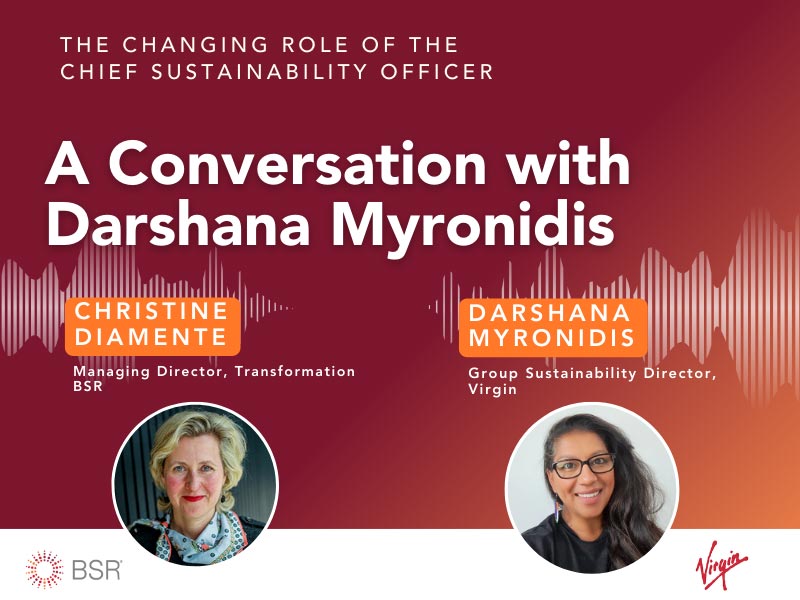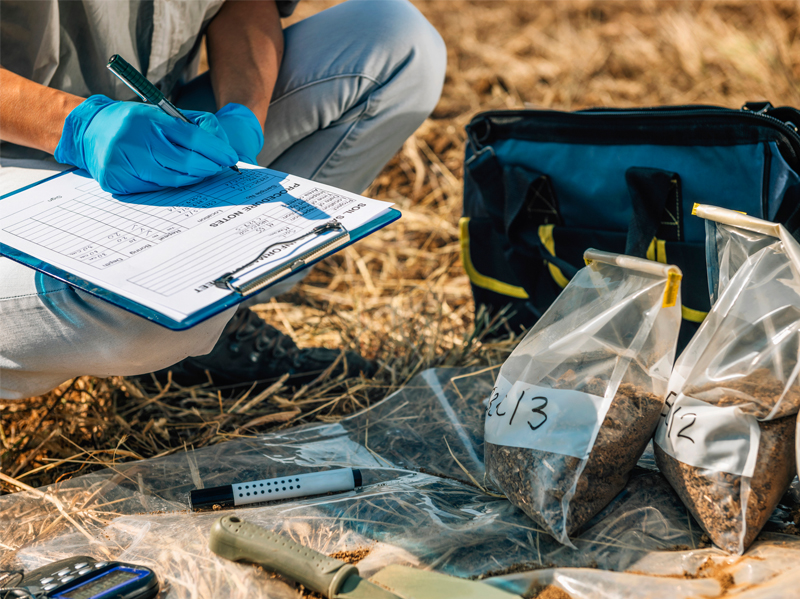Guests
-

President and CEO, BSR
Aron is recognized globally as a preeminent authority on just and sustainable business. In addition to leading BSR, which has grown substantially throughout his tenure as President and CEO, Aron advises senior executives at BSR’s 300+ member companies and other global businesses and partners on the full spectrum of environmental, social, and governance issues.
Aron joined BSR in 1995 as the founding director of its Business and Human Rights program. He later opened BSR's Paris office in 2002, where he worked until becoming President and CEO in 2004. Aron has served on advisory boards to CEOs at AXA, Barrick Gold, Marks & Spencer, Nike, Recruit Holdings, SAP, Shell, and he serves as a director of the We Mean Business Coalition and RISE.
Aron speaks frequently at leading business and public fora and is widely quoted in top-tier media, such as the Financial Times, Le Figaro (France), The New York Times, The Wall Street Journal, Axios, and Politico. He is co-author of the book Sustainable Excellence: The Future of Business in a Fast-Changing World, which spotlights innovative sustainability strategies that enable business success.
Prior to joining BSR, Aron practiced law in San Francisco and worked as a journalist at ABC News in New York. He holds a BA from Tufts University and a JD from the University of California, Berkeley.
Recent Insights From Aron Cramer
- A Message from Aron Cramer, BSR President and CEO / April 30, 2025 / Blog
- Meeting the Moment Together: BSR’s Partnership with You / April 10, 2025 / Blog
- Navigating Uncertainty: The Impact of U.S. Tariffs on Sustainable Business / April 8, 2025 / Blog
- Navigating Change: How Business Leaders Can Respond to a Changing Policy Environment / February 20, 2025 / Blog
- A Year of Uncertainty: Maintaining Progress Amidst a Battle of Ideas / February 13, 2025 / Audio
-

Managing Director, Marketing and Communications, BSR
David leads BSR’s marketing and communications initiatives, working with a global team to amplify the organization’s mission and showcase its activities, impacts, and thought leadership to members, partners, and the wider business and policy community.
David previously worked for The B Team, a group of global business and civil society leaders working to catalyze a better way of doing business for the well-being of people and the planet. Throughout his 20-year career, he has worked with businesses and nonprofits in economic development, public health, and sustainability to define and communicate their purpose and impacts. .
He has built high-impact communications campaigns for a collaboration to improve maternal health in Zambia and Uganda, driven top-tier media coverage for a major economic development project in upstate New York, and helped strengthen parliamentary capacity and voter education efforts in South Africa and Zambia. He began his career as a newspaper reporter.
David earned his M.A. from The Elliott School of International Affairs at the George Washington University and his B.A. in Journalism and Political Science from Michigan State University.
Recent Insights From David Stearns
- A Year of Uncertainty: Maintaining Progress Amidst a Battle of Ideas / February 13, 2025 / Audio
- A Conversation with Mario Abreu, Group VP, Sustainability, Ferrero / February 6, 2025 / Audio
- A Conversation with Darsh Myronidis, Group Director of Sustainability, Virgin / January 8, 2025 / Audio
- Reflections from Climate Week NYC: The Tension Between Pragmatism and Ambition / October 1, 2024 / Audio
- Navigating U.S. Election Uncertainty: A Call to Action for Sustainable Business / August 1, 2024 / Audio
Description
In the United States, electoral uncertainty, threats to democracy, and the potential for instability and chaos are notably apparent as the country faces an enormously consequential election this fall. What are the risks for sustainable business, and what proactive steps can business leaders take to mitigate them? BSR President and CEO Aron Cramer chats with David Stearns about five topics central to the just and sustainable business agenda that will be affected by the outcomes of the election, followed by strategies for advancing sustainability objectives using BSR’s Act, Enable, Influence approach.
Listen
Transcription
David Stearns:
Welcome to BSR Insights, a series of conversations on emerging and cross-cutting business, economic and social issues. Drawing on BSR'S expertise from more than three decades of leadership in sustainable business, we help practitioners and decision makers to navigate today's increasingly complex world. I'm your host, David Stearns.
Hello everyone. We're joined today by Aron Cramer, President and CEO of BSR. Welcome back, Aron.
Aron Cramer:
Thanks and great to be with you, David.
David Stearns:
Great to be with you again as well. Hope you're well. So earlier this month, BSR published a new Insights+, which offered business guidance on the ways that they can navigate election uncertainty in the United States.
Barely a week after we hit post, we witnessed the horror of an assassination attempt on the former president, and not long after that, a massive shakeup as the current president withdrew his candidacy. So who knows what will happen between the time you and I chat today and broadcast it.
All that being said, I think it's safe to say that our calls to action for sustainable business remain as urgent as ever, and today we're hoping to review some of the guidance that BSR has offered to sustainability leaders to help them advance sustainable business objectives amid these and other election-related uncertainties.
But before we home in on the US, I'd like to zoom out to a little bit more of a global perspective. Now at least 60 countries around the world have held or will be planning to hold elections this year, and the results are already sending strong signals about the implications for sustainable business. So I thought we could start, if you could take a few minutes to share with us your thoughts on these implications. Perhaps highlighting some observations from the elections that have already taken place in countries around the world, from the end of Tory Rule in the UK, to Mexico's election of its first female president, to the whipsaw elections that we recently saw in France.
Aron Cramer:
Yeah, I mean I think the headline for business is that populations are unsettled. There is a lot of dissatisfaction in the public. You see this through the approval ratings of heads of government, heads of state in, for example, the G7 countries. They're all abysmal. They're all very, very low. And I think what that speaks to is the fact that the population is feeling scared. I think it’s an overhang from the disruptions of the 2020s, and there is a general antipathy towards established leaders.
Now why is that relevant for business? It is for two reasons. One is it is a pretty good predictor of what we might see in these elections, but it is also I think something that suggests that the public is unhappy with incumbents of all sort, including large companies. And so that may be the cause that is resulting in the symptoms of the elections. And even just in the 24 hours before we recorded this, we had a result in Venezuela that is, to most observers being claimed as a victory for Nicholas Maduro, when in fact all the exit polls show that he lost pretty decisively. So stay tuned in the next hour, things could change. But I do think this underlying and pretty global sense of dissatisfaction is really the dominant theme that we're seeing right across the globe.
David Stearns:
You did mention how business leaders are not immune from some of the dissatisfaction of heads of state, particularly in the G7 countries. I'm curious to hear your thoughts on, is that born from a lack of trust in business leadership, or are there other factors at play here that you think might be playing into that?
Aron Cramer:
I think there are multiple factors. I think there is a degree to which the public is feeling economically vulnerable, and believes that the market economy is not delivering for them. And I think that encompasses a whole range of things, but they're obviously relevant to business. It encompasses disruption from climate change, it encompasses disruption from new technologies. It encompasses the ongoing income inequality that we see in so many places, in a sense that systems and institutions are not working very effectively. So I think this is at the core of the discomfort in our voting populations, and I think it's essential that business think about what it can do to first of all understand that, but then secondly and more importantly, to take steps to mitigate some of that economic vulnerability, precarity and discomfort that exists right across our populations.
David Stearns:
That's a good segue to the second question that I wanted to raise with you, which is focusing in a bit more specifically now on the US. In our recent report, BSR identified four topics which would be central to the just and sustainable business agenda potentially to be affected by the outcomes of the election in the United States. So I'd like to review these with you one by one. And starting with, the outcome of the US election is going to have dramatic impacts on the way the US approaches climate policy and action, or whether the new administration will even acknowledge the scientific consensus on the causes of climate change. What are the best and worst case scenarios on this in your view?
Aron Cramer:
Well, in the US we have a very unusual situation where we have the incumbent administration, even if Kamala Harris is going to be the nominee instead of Joe Biden, she's been vice president for the last four years. Versus the prior president before Biden and Harris came into office. So you don't have to do a lot of speculating, because both of these administrations have a record, and clearly Biden-Harris administration has been the most active, and the most accomplished on climate of any American government, and right up there with any government anywhere in the world. And there is precisely zero evidence that that's going to change in a meaningful way if Kamala Harris is elected in November.
So there's a continuity story there that's really important. The Trump administration also had a very clear record. They were hostile to climate action, withdrew the United States from Paris agreement, of course, putting in all sorts of barriers to ESG investing, and maybe we'll talk about that later on. The list goes on and on and on. And of course you have project 2025, which is the 900-page plus manifesto in terms of what Trump administration will want to do. And I think it's pretty accurate, and not at all hyperbolic to say it is largely hostile towards the clean energy transition.
Now that said, I don't think most people think the Inflation Reduction Act is going to be overturned. No one thinks that the infrastructure law that came into place, which has a pretty substantial climate dimension to it, is going to be overturned. And so I think it will not be a complete reversal, but it will be a very fundamental change that will make it harder, and slower, and more expensive, and more volatile to reach where we need to get in terms of the energy transition, which is growing more urgent by the day. We've had the three hottest days in human history in the last week or 10 days. So we know that it's essential, and there couldn't be a clearer choice on this subject, and it will have major impacts on business.
David Stearns:
To what extent do you think, I know this is a bit speculative on your part, but to what extent will business leadership potentially come more into play depending on the outcomes of the election? I mean, does US climate leadership rest solely on the policies of the government, or can the US business community act in such a way as to maintain some level of US engagement and leadership on the topic?
Aron Cramer:
Well, business I think had a pretty good record in 2017 to 2020 aiming to ensure, through things like the We Are Still In Campaign, and lobbying, and investments, and innovations, and the things that businesses do regardless of public policy. I think that will continue, but I think there may be a real difference this time around because of a whole range of factors, including Supreme Court cases in the US which are widely seen as weakening regulatory agencies that are charged with ensuring environmental progress on a whole range of subjects. You have a judiciary that is more hostile to government action in general, and climate action in particular.
And climate is again a culture war issue, and this time around it's not clear to what degree businesses want to put themselves in the center of those questions. There's less appetite for that now than there was three or four years ago. I also think there's simply fatigue, and a sense that business has to focus on business issues. I don't celebrate that, but I think it's very real. So yes, it will raise the premium on businesses to take action. I also think it will make it a bit harder for businesses to play that role, should another Trump administration come into power.
David Stearns:
You said the magic words of “culture war,” which is a great segue into one of the other items on our discussion agenda today, which is to talk about DEI. And so given the heated rhetoric in the media regarding diversity, equity and inclusion, a similar stark dichotomy will likely present itself on this topic more broadly, particularly as it concerns the election. I think similar to climate change, we have two administrations with very different approaches and track records on this. What thoughts do you have on that topic in terms of how DEI is likely to play out in the next four years, depending on the outcome of the election?
Aron Cramer:
So there's one underlying fact here. American society is growing more diverse. It's a demographic fact, and no political figure can erase that. They can try to combat it, but the reality is that American society, in American society, the fastest growing demographic group according to the US Census Bureau is people, this is their language, not mine, people of mixed race, people of different backgrounds. And that's just a reality. And that means that every business's customers are growing more diverse, every business's employees are growing more diverse, the needs and the way of receiving information, different communities are interested in different things.
That is diversity, that's not going away. And I think it is, whatever the policy differences are, I think it would be a major mistake on the part of business to overlook that reality, because this is a dynamic that is in place, and is only going to continue. That said, and again both through political voice from some political candidates, from court decisions that we've seen, and from different regulatory actions, there are limits being placed on the degree to which institutions, whether businesses or universities or investors can consider DEI. And those things are real as well. They are, in my view, unethical, and they're also I think exceptionally shortsighted, but I think we can count on diversity, as well as equity and inclusion, being at the center of the culture wars no matter who wins the election.
And there's one dominant theme to remember about this election. The American system is not a unitary model. So I think what we are going to see is a multi-layered outcome, where it is highly unlikely that there will be a dominant majority in Washington, even if one of the two parties claims the White House and both houses of Congress. The likeliest outcome is that there will be very, very slim majorities there. And again, even if one party has nominal control, I think the utility of that control is going to be limited.
The other thing is with the federal system, we still have states and cities that do lots of things, and you can posit a democratic control of Washington with large states of Texas and Florida taking a different point of view, or alternatively a Republican administration, with states like California, New York and Illinois taking a different point of view. So I think these are issues, and DEI is absolutely one of them that's going to be caught in the crossfire, and I use that term symbolically. U
Unfortunately we've had an example of political violence, and risk of more. So I think there's going to be a continued battle over this and business is not going to get a clear signal from policymakers on DEI. It is going to have to figure it out for itself.
David Stearns:
Well, another area where there has certainly been no shortage of attempts to constrain business action legally has been on the topic of ESG and ESG investing. And I think it's pretty clear that the election itself will also potentially impact the broader landscape of responsible investing. How are the potential political fluctuations likely to impact responsible investing, and how likely is it that the attacks on ESG, which really haven't gone away, but may ramp up again depending on the outcome?
Aron Cramer:
Again, I think you're going to see a sort of a split screen view, with people in positions of authority in various parts of government, both in Washington and at state level, including large pension funds, taking different points of view on the value, and frankly in the eyes of some, legitimacy... I don't celebrate that, but it's real - the legitimacy of ESG investing. Again that's going to be present no matter what the outcome is in November. It's going to be a muddled picture no matter what.
Here's what I think the dominant reality is on ESG investing and US politics. Because things are muddled, because there's no consensus, the rest of the world is moving ahead without the United States. Already, the SEC rule on climate disclosure is weaker than what you see in Europe, frankly in China, in Singapore, in other jurisdictions, let alone the ISSB and so on. And so the US is falling behind there because it's a little stuck. And I think the SEC took a less ambitious step than others have, including the state of California, for that matter, on climate disclosure, because it knew that the courts presented a real challenge, and they wanted to come up with a rule that could pass muster with the challenges that were predicted and are now here in the court system.
So on this one, I think the divisions mean that the United States, despite it being the largest economy in the world, despite it historically being looked to as a leader, has de facto abdicated that position of leadership because of the political stasis that we see.
David Stearns:
Considering that many companies engage on ESG, not because it represents some kind of necessarily progressive worldview on business, but really out of a sense of financial prudence and really trying to look out for the long-term interests of its shareholders. Why do you think we haven't seen business push back a little bit more strongly on some of this anti-ESG pushback?
Again, I think most of it, or much of it is predicated on this idea that we are looking for, or businesses are looking for, ways to limit their exposure to risks on environmental things, on social factors, governance factors that may affect their companies, and also on the double materiality side, looking at how their companies are impacting those items. Why do you think we haven't seen business push back very much on some of these attempts to reign in ESG investing?
Aron Cramer:
I think you need to look at both words and actions. And I think in terms of actions, businesses continue to stay committed, largely to the degree that they have been in the last five years before some of this pushback came forward. So I think, I don't want to paint too negative a picture, because businesses are continuing to pay attention to a lot of these questions.
That said, the political price that they pay for using their voice has been raised. And it's been raised, in my view, by political figures who are trying to, again, raise the price for businesses that do that for their own political reasons. And so I think it would be no surprise to anybody listening to this that businesses have grown quieter, we've all gotten to come to terms with the...or we've all come to know the term greenhushing, and so on. And we know that elected officials have targeted chief executives and boards and brought shareholder resolutions to push back on this. And that's a very deliberate effort, and I think we have to combat it, and hopefully stiffen the spine of businesses so that they continue to stay the course not only in deed, but also in word, because in this instance, the words do matter.
David Stearns:
Another big focus for business this year has been the significantly changed regulatory environment. And curious to hear your thoughts on the implications for companies in the US in the context of the elections here. In what ways might the election results make managing this, what is a very complex matrix of different regional and national approaches to due diligence and disclosure, to what extent will the outcomes of the election here in the US make navigating those different regulatory regimes more or less difficult for companies?
Aron Cramer:
Well, I'll tell you what I would like to see, and then what I think we will see. What I would like to see is companies saying, "Hey, United States, if you're not moving, we are. So if you want to shape the future of these regulations that are so important to us, to the American economy, let alone the world economy, and the 335 million people who live in the United States, don't be left behind."
And I would like to see businesses, and I think the vast majority of businesses are doing this, say, "We are going to look to the global standard that has the most resonance, and if those are being made in Brussels, or in Beijing, or in Singapore, well then we're going to follow what's coming forward there. And there's a lot of evidence that whether it's due diligence, whether it's reporting and disclosure on many things affecting the deployment of technologies, that's exactly what global businesses are doing. And I think we're going to continue to see quite a lot of that, and I hope more. Because doing the minimum possible is not how you build a successful business, whether you're talking about regulatory compliance, or product quality, or product safety, or anything under the sun. So that's what I would like to see.
I think there's another side of the story, which is that companies are dedicating it an inordinate amount of time, money, bandwidth to compliance with regulations, and losing sight of the need to build the future, and build companies that are really ready for all the changes that are taking place. It's a slightly different question that comes up, would come up even if the SEC and the ISSB used 100% the same terminology and the same requirements. So that's not a US-specific answer, but I do think that as we've been saying to our member companies, you need to focus on both the letter and the spirit of the law. And I am seeing quite a lot of companies focusing on the letter of the law, and losing sight of the spirit of the law and the kind of progress that's supposed to be promoted, and that remains crucially important.
David Stearns:
Thanks for that. So before we pivot over to talk more specifically about some of BSR'S recommendations for companies in the wake of the election, could you talk for a few minutes about what the implications for global cooperation will be stemming from this election?
Aron Cramer:
Yeah, so that's a great question, and I think that's an intangible but very important dimension of what might come out of the election. There is no way that, and just put it in terms of business, leave society out of it for the moment, that any business will see the kind of systemic, clear forward-looking progress on climate, on nature, on assuring rule of law without international collaboration, it's just not going to happen.
And we have a lot of nationalistic movements in the world, not only the United States, to be sure, but that further fragmentation of the world means that businesses will find a much more volatile, uncertain environment for addressing everything that BSR is here to work on. And it also means that a pendulum is going to be swinging back and forth on various policy questions. So businesses need a world where there's global cooperation, and political movements that seek to undermine that and create islands of influence instead of broad coalitions for consensus, I think that's a really bad bet for business.
And so I think promoting the stability and belief in what's sometimes called the rules-based international order, but just say global cooperation, it couldn't be more important to business. And I think that's when we talk about what can business do, I think standing up for that is one of the things businesses can do.
David Stearns:
Thanks for that, Aron. So as previously mentioned, I'd like to turn to some of the recommendations that BSR offered to business leaders on how to continue to advance sustainable business objectives in the context of the 2024 election, and the uncertainty that comes with it. In our report, we organize this into three categories, which I assume will be very familiar to our listeners, and anyone who knows BSR, act, enable and influence. So I'd like to start by asking you to take us through, what are some of the actions that business can take to keep their focus and ambition on sustainable business after the election?
Aron Cramer:
Well, first I would say that businesses should think about the impending US elections, both in terms of the run-up to the election, the election itself and the immediate aftermath, and then what comes next in 2025 and beyond. And that's what we're encouraging, that's how we're encouraging companies to think.
The first thing I would say is to game out the different scenarios. I think the whole world was astonished and horrified to see the attack on the US capitol on January 6th. I think we now know that there can be outcomes that will be highly disruptive, or worse, to American society and the stability of the American government. So be prepared for that by understanding all possible scenarios. That's number one.
Number two, stand up for democracy. Encourage employees to vote, give people time off to vote. Encourage employees to have good media literacy so they're not susceptible to misinformation and disinformation, that so far happily hasn't been as prevalent as a lot of us thought it might be, but is a real risk. So understand the situation, be ready for it, and just promote democracy in an absolutely nonpartisan way, and enable and encourage everyone in a company's orbit to get out and vote. We have very low voting levels in the United States. So those are some things that can be done beforehand.
And then in the immediate aftermath, stay true, no matter what the outcome is, to commitments and on the areas that BSR works on, corporate governance, human rights, climate and nature, equity, inclusion and justice. Be ready to act on and advocate for those principles, even if there is an element of the government, whether it federal, or state, or local level, that is hostile to it. Stay true to those principles, they're there for a reason, and restate them. Those are all things that are important. Now, if things go off the rails, then I think there's a whole other set of actions that companies can take. Some did in the immediate aftermath of January 6th, hopefully we won't get there.
David Stearns:
What about some of the ways that business can enable progress, and/or use their influence to advance sustainability in the similar context?
Aron Cramer:
Well, the concept of enabling is basically taking the things that individual businesses can do and amplifying and magnifying that by working in coalitions. And that can be business coalitions, that can be coalitions with civil society organizations, and others who have expertise. We all know that when it comes to elections, a lot of companies are skittish about various things, because their actions can be construed as partisan, which they don't want to be, or focusing on politics rather than what is real business, which they don't want to do. But working with coalitions is exceptionally valuable. I would like to say that working with trade associations is a good mechanism. Frankly, I think the record is mixed. There was some good evidence in 2020 of some of that, but I think the business voice can be amplified, and the risk to an individual business can be mitigated by working through coalition, so I think that's really important.
When it comes to influence, it's a mixture, private and public diplomacy. And I think making clear to all candidates that companies are interacting with, that they will not look kindly on efforts to interfere with the free and fair election, and that they will remember those actions and not overlook them. I think that's number one.
And then I think advocating for the issues that we're talking about, making clear publicly why climate is important for business. We all know the reasons on this call, there is a segment of the political culture in the United States and the public in the United States that doesn't. I think the business voice using its influence to reinforce those things. Same on equity, inclusion and justice, same on human rights, same on reporting and disclosure. Those are all things where business has at its best a standing in society, because it's viewed as being about profit maximization. So people take that seriously as a hardheaded nonpolitical point of view when done right, and that can have some real value at a time of turmoil.
David Stearns:
So finally, I know BSR is already working with member companies to help them to understand, navigate, and shape the potential outcomes and impacts of the election. Could you provide our listeners just with a quick glimpse of what some of those projects look like, and where companies might be able to get involved?
Aron Cramer:
Sure. So first of all, we are working on some scenarios, and we're going to be publishing a bit more of those to try to give the business community as a whole, and all the other stakeholders that we work with, a sense of how we see the potential outcomes evolving, and try to help companies see the range of possibilities that are out there. We have an Elections Roundtable group, any one of our member companies is welcome to join it, we're meeting monthly. We've been doing role-playing, and scenarios, and creating tools, and bringing in various experts to help companies understand the issues, and get ready for them with respect to the election, so that's a second thing.
We've been doing briefings for boards of directors to try to help them understand what could happen in the coming months to be ready for it. And then I'd say we will be ready the day after the election to work with companies to adapt to ensure that their commitments to just and sustainable business continue regardless of what the outcome of the election actually is. And my hope is that the agenda that we all share will have the wind at its back, but we will be prepared if they're either cross currents or headwinds, because the work is simply too important, and too important for all of us as people, as citizens, communities, businesses, and economies overall.
David Stearns:
Well, I couldn't agree more, Aron, and thank you for that. I think it's a great note to close on. Before we do, I'll just say I think this will probably be the last time that you and I chat before September when we reconvene for around Climate Week and United Nations General Assembly. I'm sure we'll be talking plenty about the events that week.
And also to give a plug for our listeners who may be coming to New York for Climate Week, on bsr.org, you can find a hub with all of the activities and events that BSR will be hosting during Climate Week, as well as a link to other events happening in New York during the week for our members, available in the BSR member portal. Again, thank you very much, Aron. We appreciate your time, and look forward to talking to you soon.
Aron Cramer:
Sounds great. Thanks David.
David Stearns:
Thanks for listening. For more in-depth insights and guidance from BSR, please check out our website at bsr.org and be sure to follow us on LinkedIn.
Let’s talk about how BSR can help you to transform your business and achieve your sustainability goals.







